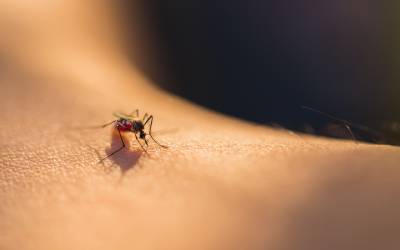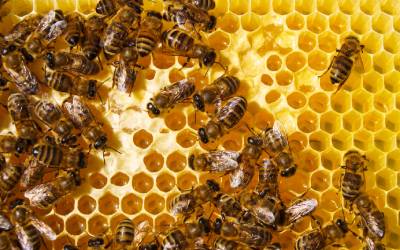You might think that you’re in the clear for pest problems when the summer heat starts to dwindle, but certain types of pests actually thrive around this time. With an ample amount of warmth and plenty of people participating in outdoor activities, the pests of late summer have an easy time finding what they need, whether it be a blood meal, a food supply, or a place to build their nest. In order to ensure that pests don’t steal the last of your summer, you have to take preventative measures against them. Read on to learn what pests to watch for and what you can do about them with the experts at Batzner Pest Control in Wisconsin!
Common Pests in Late Summer
Every season has its own pest problems. The pests that bug us in the late summer are typically the ones that have the most to gain from warm conditions. They are as follows:
- Bees and wasps: Bees and wasps stay active into the late summer pollinating plants and taking advantage of the food that humans leave outside during barbecues, get-togethers, and whatnot.
- Ticks: Ticks breed during the early summer, producing a yield of offspring that will climb to the tops of tall grass in search of hosts a month later. They thrive in the overgrowth during warm weather.
- Wildlife: Wild animals that usually hibernate during the cold winter months spend their summers outside and too often in our business. Wild animals like raccoons, opossums, and squirrels that wander into your yard could tear through your trash or garden and cause serious damage.
- Mosquitoes: If mosquitoes establish a successful breeding population, their numbers will be so high by the late summer that it will be almost impossible to deal with them. Mosquitoes remain active as long as temperatures don’t drop below 50°F consistently.
Pest-Proof Your Property for Late Summer
Drastic infestations of any of these kinds of pests call for the intervention of a professional exterminator, but there are some general housekeeping strategies you can try to prevent pest problems on your property before they start. We recommend the following:
- Keep your yard tidy: Make sure that all of your trees and shrubs are trimmed back, promptly dispose of piles of grass clippings or other vegetation, and make sure you aren’t leaving out any items that could lead to a small, temporary pest shelter.
- Seal your home: Regularly monitor the outside of your property to make sure that your home doesn’t have any cracks or gaps in roofing, foundation, or siding.
- Be careful with trash: Using bins that seal and regularly taking out your garbage to the outside bins will go a long way in preventing wildlife infestations.
- Get rid of standing water: Mosquitoes breed in pools of standing water, no matter how small. Covering up pools, spas, and birdbaths and regularly checking for rainwater pools will help keep mosquitoes away.
Help with Summer Pests
If you’ve tried everything you can to prevent pest infestations to no avail, it’s time to team up with your local pest control company. Our team at Batzner Pest Control is entirely licensed, certified, and thoroughly trained on all of the types of pests that we regularly see here in Wisconsin. We can determine the cause of your infestation, put it to a stop, and teach you how to identify and correct vulnerabilities on your own going forward. Reach out today for a free quote!


